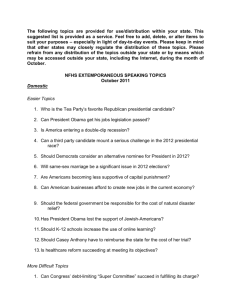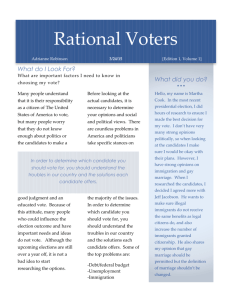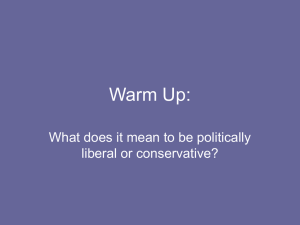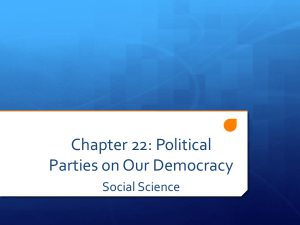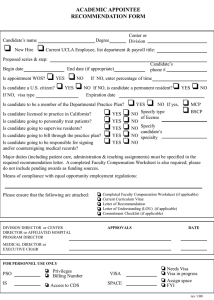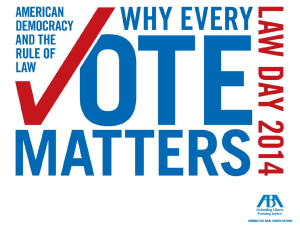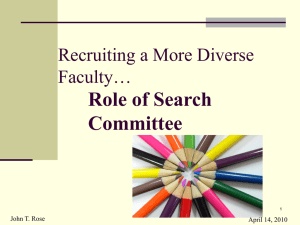Third Parties
advertisement
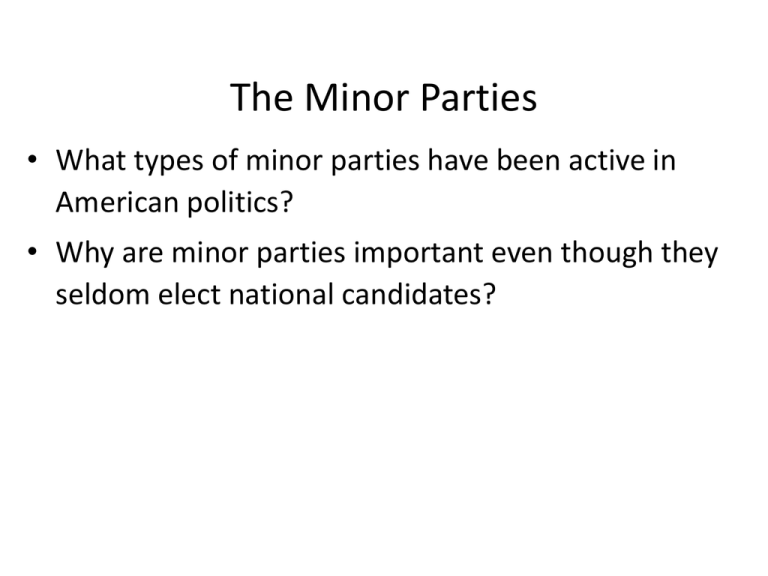
The Minor Parties • What types of minor parties have been active in American politics? • Why are minor parties important even though they seldom elect national candidates? The Odds Are Against Them • It is difficult for third parties candidates to raise enough money to compete with the major parties. • Only one candidate can win in a given district. Usually the winner is either Democratic or Republican. • Third-party candidates must show they have support by getting voter signatures to even be placed on the ballot for national office. Minor Parties in the United States Types of Minor Parties Ideological Parties Single-issue Parties Economic Protest Parties Example: Libtertarian Party Example: Free Soil Party Example: The Greenback Party Splinter Party Example: “Bull Moose” Progressive Party Minor Parties in the United States Why Minor Parties Are Important Minor parties play several important roles: “Spoiler Role” • Minor party candidates can pull decisive votes away from one of the major parties’ candidates, especially if the minor party candidate is from a splinter party. Critic • Minor parties, especially single-issue parties, often take stands on and draw attention to controversial issues that the major parties would prefer to ignore. Innovator • Often, minor parties will draw attention to important issues and propose innovative solutions to problems. If these proposals gain popular support, they are often integrated into the platforms of the two major parties. Third Parties • Any party other than the two major parties can be called a “Third party.” • No third party has ever gained control of the White House. Sometimes, third parties win seats in Congress or gain office in lower levels of government. • When these smaller groups challenge the two major parties, they can change the outcome of elections. • Their most important role is to influence policy on one or more issues. Ralph Nader, Green Party Candidate, 2000 Third Parties at the Turn of the Century • In the late 1800s, the People’s Party, or “Populists” became popular. • They had the support of farmers and workers who called for better working conditions. • They never succeeded in getting a national candidate into office, many of their ideas on workers’ rights became laws in the 20th Century. The Republicans Split • Former Republican President Theodore Roosevelt left the Republican Party and was nominated by the Progressive Party. • It was nicknamed the “Bull Moose Party” because TR said he was “fit as a Bull Moose”. • TR split the 1912 Republican vote, allowing Democrat Woodrow Wilson to defeat President William H. Taft. Ideological Third Parties • An ideology is a body of ideas put forth by a person or group. • Minor third parties are often formed to support a specific issue. These rise and fall over time. • Ideological parties want to change society in major ways. • The Socialist and Communist Parties want to nationalize major industries. The Green Party calls for companies to respect the environment. Cult of Personality • Some third parties form from the efforts of famous people. • If they cannot gain support from one of the major parties, they form their own. • H. Ross Perot’s Reform Party was a force in the 1992 and 1996 elections. This party also placed pro wrestler Jesse Ventura in the governor’s mansion in Minnesota. • These parties usually fade after their candidate is defeated. Minor Parties in the United States Year 1832 1856 1860 1860 1892 1912 1912 1924 Party Anti-Masonic American Democratic (Secessionist) Constitutional Union People’s (Populist) Bull Moose (Progressive) Socialist Progressive Presidential Candidate Percent Popular Vote Electoral Votes Received William Wirt 8% Milliard Fillmore 22 John C. Breckenridge 18 7 8 72 John Bell 13 James B. Weaver 9 Theodore Roosevelt 27 79 22 88 Eugene V. Debs 6 Robert M. LaFollette 17 0 13 Minor Parties in the United States Year 1948 1948 1968 1980 1992 1996 Party States’ Rights (Dixiecrat) Progressive American Independent National Unity Reform Reform 2000 Green 2000 Reform Independent Presidential Candidate Percent Popular Vote Strom Thurmond 2% Electoral Votes Received 39 Henry A. Wallace George C. Wallace 2 14 0 46 John Anderson Ross Perot Ross Perot 7 19 8 0 0 0 Ralph Nader 3 Pat Buchanan Ralph Nader 0 0 0 0 0

